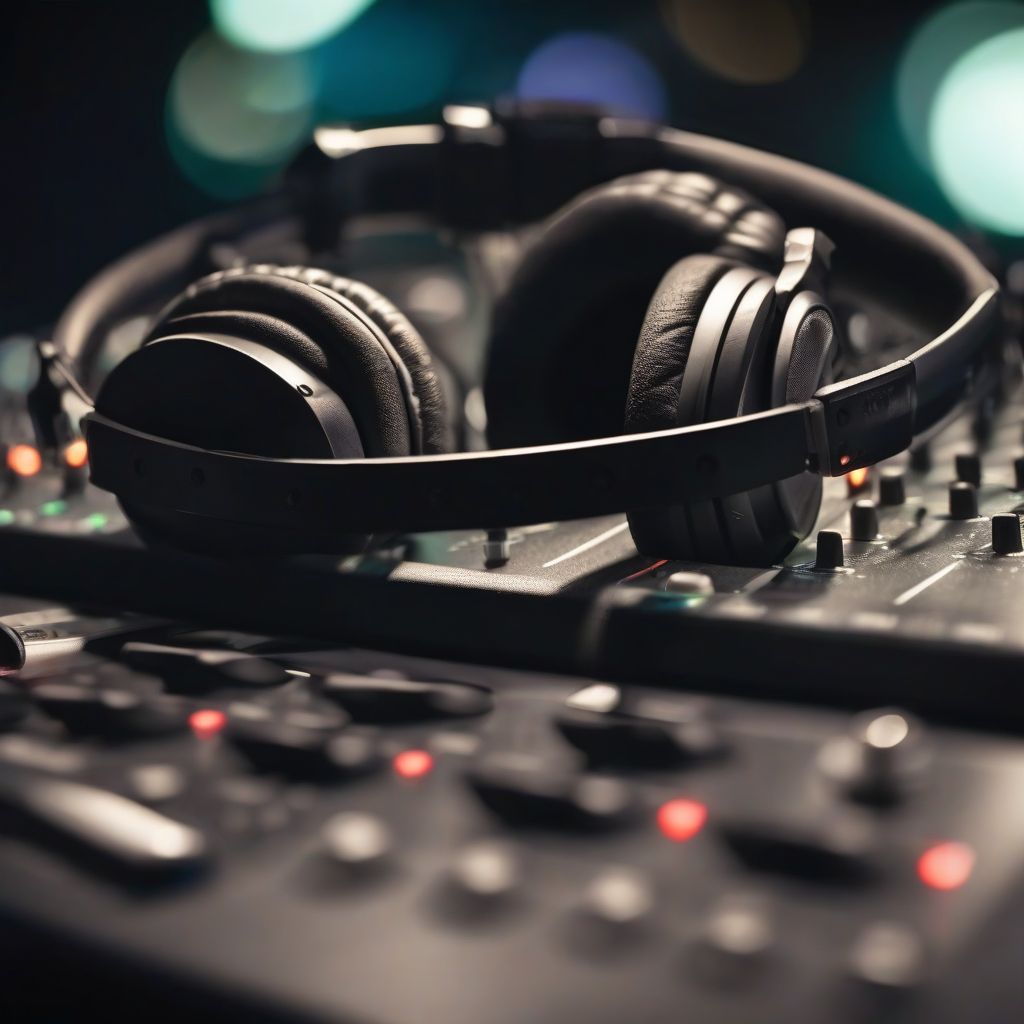Have you ever listened to a track and wondered how the artist managed to get such crisp, clear sound? While instruments and microphones play a significant role, the unsung hero is often a good pair of headphones. In the world of music production, headphones are non-negotiable. They’re not just for listening to tunes; they’re vital tools for mixing and mastering. Choosing the right pair can be the difference between a muddy mix and a professional-sounding masterpiece.
But with a market flooded with options, finding the perfect pair can feel overwhelming. Don’t worry; this guide will equip you with the knowledge to confidently select the best headphones for your music production journey.
Understanding Your Needs: More Than Just a Pretty Beat
Before diving into the specifics, it’s crucial to identify your individual needs. Consider the following:
1. Budget: Finding Your Audio Sweet Spot
Headphones for music production can range from budget-friendly to eye-wateringly expensive. Set a realistic budget before you start browsing. Remember, investing in quality headphones is an investment in your craft.
2. Sound Signature: It’s All About That Accuracy
Different headphones emphasize different frequencies. For music production, a neutral and accurate sound signature is crucial to make informed mixing decisions. Look for headphones that offer:
- Flat Frequency Response: This ensures you hear all frequencies at their true levels without any artificial boosts or cuts.
- Clear Highs: Essential for crisp cymbals and shimmering vocals.
- Balanced Mids: Crucial for natural-sounding guitars, vocals, and most instruments.
- Defined Lows: Allows you to accurately mix bass lines and kick drums without muddying the mix.
3. Isolation vs. Soundstage: Finding the Right Balance
- Closed-back Headphones: These provide excellent noise isolation, essential for recording and focusing on your mix. They’re ideal for minimizing bleed from your headphones into microphones.
- Open-back Headphones: These offer a wider soundstage, creating a more natural and spacious listening experience. While amazing for mixing and mastering, they lack isolation, making them unsuitable for recording.
4. Comfort and Fit: Long Hours, Happy Ears
Music production often involves long hours of critical listening. Choose headphones with:
- Comfortable Earcups: Look for breathable materials and ample padding.
- Adjustable Headband: Ensures a secure and comfortable fit for extended sessions.
- Lightweight Design: Reduces fatigue during long mixing sessions.
 Best Headphones for Music Production
Best Headphones for Music Production
Key Features to Consider: Decoding the Jargon
Navigating the world of headphones can feel like learning a new language. Here’s a breakdown of essential features to look for:
1. Driver Size and Type: The Heart of the Sound
- Driver Size: Larger drivers generally produce more powerful bass frequencies.
- Driver Type: Dynamic drivers are common and affordable, while planar magnetic drivers offer greater accuracy but come at a higher price point.
2. Impedance and Sensitivity: Matching Your Gear
- Impedance: Measured in ohms (Ω), it indicates the headphone’s resistance. Lower impedance (32 Ω or less) headphones work well with most devices, while higher impedance headphones (e.g., 250 Ω) may require a dedicated headphone amplifier.
- Sensitivity: Measured in decibels (dB), it indicates how loud the headphones get with a given power input.
3. Build Quality and Durability: Built to Last
Investing in headphones with durable construction is essential, especially if you’re frequently on the move. Look for:
- Sturdy Materials: Metal components in the headband and hinges can enhance durability.
- Replaceable Parts: Headphones with replaceable earcups, cables, and headbands offer longevity.
Popular Types of Headphones for Music Production
1. Closed-Back Studio Headphones: The Workhorses
These are the industry standard for a reason. They offer:
- Exceptional Isolation: Crucial for recording and critical listening in noisy environments.
- Accurate Sound Reproduction: Essential for making informed mixing and mastering decisions.
- Durability: Built to withstand the rigors of studio use.
Examples: Audio-Technica ATH-M50x, Beyerdynamic DT 770 PRO, Sennheiser HD 280 PRO
2. Open-Back Reference Headphones: The Mixing Marvels
These headphones excel in:
- Wide Soundstage: Creates a more natural and spacious listening experience, ideal for mixing and mastering.
- Detailed and Accurate Sound: Allows for precise adjustments and a balanced mix.
Examples: Sennheiser HD 800 S, Beyerdynamic DT 1990 PRO, Audeze LCD-X
3. Semi-Open Headphones: The Best of Both Worlds
These headphones strike a balance between isolation and soundstage:
- Good Isolation: Suitable for most recording situations, although not as isolating as closed-back models.
- Decent Soundstage: Provides a more open sound compared to closed-back options.
Examples: AKG K702, Beyerdynamic DT 990 PRO, Sennheiser HD 600
[amazon bestseller=”studio headphones”]
Conclusion: Your Perfect Pair Awaits
Choosing the best headphones for music production is a personal journey. There’s no one-size-fits-all solution. By considering your budget, desired sound signature, isolation needs, and comfort preferences, you can narrow down your choices and find headphones that elevate your productions to new heights. Remember, investing in the right pair is an investment in your sound and your future as a music creator.
Now that you’re armed with the knowledge, it’s time to find your perfect pair and experience the difference they make. What features are most important to you in headphones for music production? Share your thoughts in the comments below!
